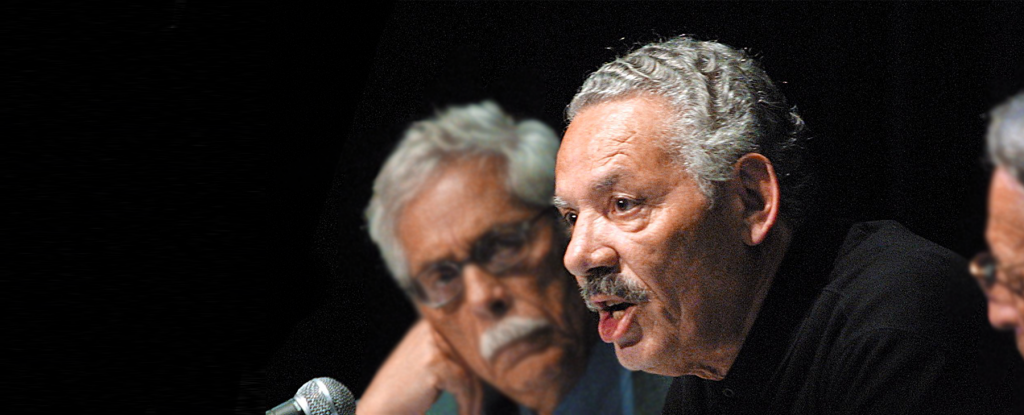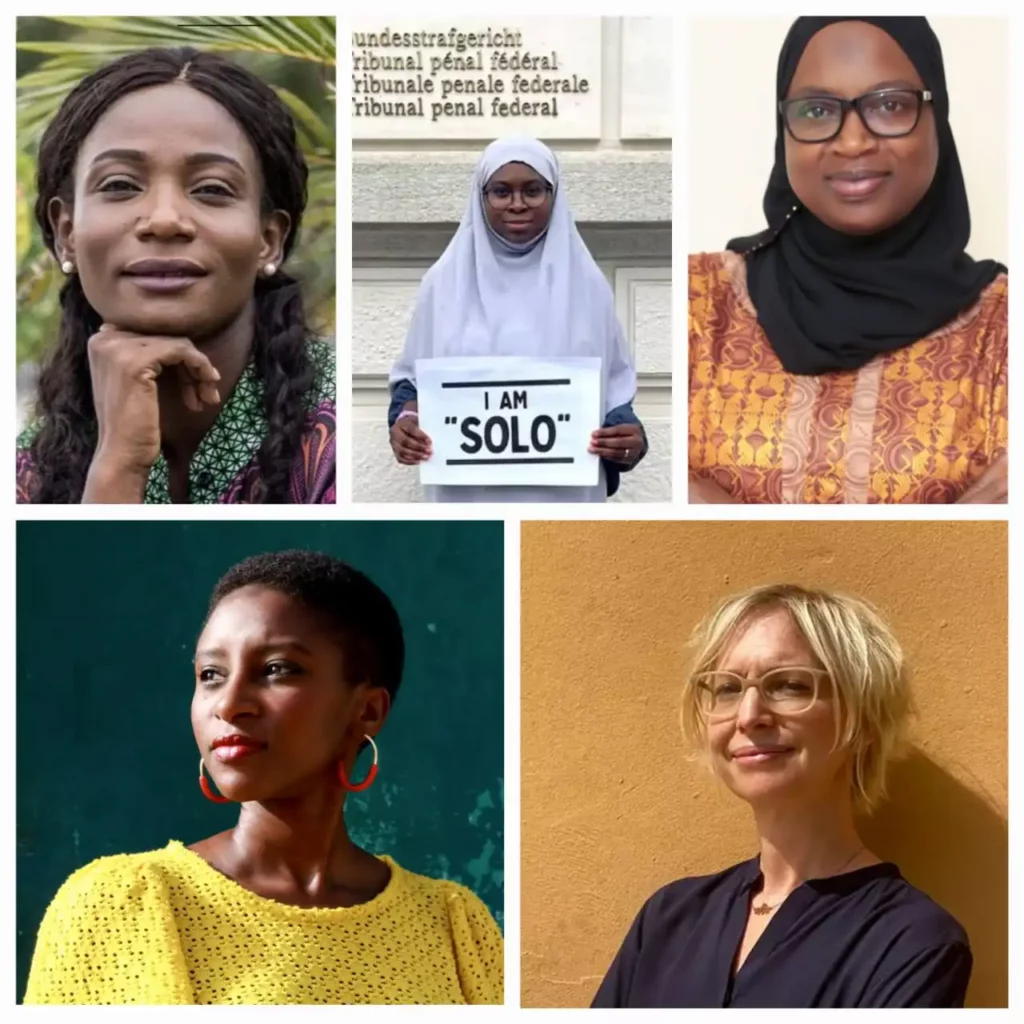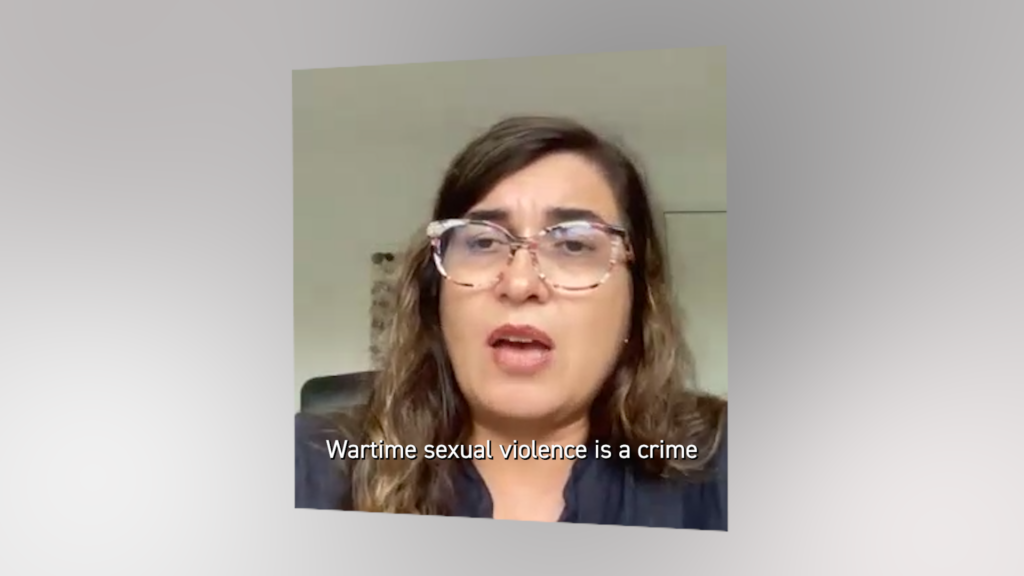“I want to help those unable to help themselves”
Adrijana Hanušić Bećirović has worked for TRIAL in Sarajevo since 2012. She shares the pride and challenges of working with war survivors.
TRIAL: You are a Senior Legal Advisor for TRIAL in BiH. How and when did you start working with wartime victims?
Adrijana Hanušić Bećirović: I was a human rights lawyer in BiH when TRIAL approached me in 2011. They needed a consultant for a case: the enforced disappearance of dozens of individuals near Prijedor during the war. Although I had experience with human rights abuse, I was shocked by this new scale of abuse I was dealing with.
For that first case, I did not liaise directly with the victims, but researching the sad stories of each victim – 50 families in total – was trying. The first days, it kept me up at night.
Do you remember the first time you met a victim in person?
I have met victims of war crimes throughout and after the war, because, unfortunately, many citizens of BiH have suffered in one way or another. My professional work with survivors started, however, by meeting a lady who had suffered sexual violence. I was inexperienced back then, so I was worried that talking about her experience could be harmful. This is a common pitfall when first working with victims: tiptoeing around them, assuming they are all psychologically vulnerable.
Over the years, I have found it impossible to make generalization about wartime survivors. Some are indeed fragile, but others are just glad or relieved that somebody is finally paying attention to their story. A lot of factors come into play: what their background is, if they had psychological support or support from their families, etc. But at the end of the day, one can never guess what a survivor will behave like. And one should avoid to assume anything about the survivor’s reactions and thoughts. As with anybody else, you have to spend time with the person in order to get to know them.
Knowing that each survivor reacts differently, how do you approach victims you meet for the first time?
The key is to give the victim enough space. After a first contact over the phone, I suggest we meet somewhere they feel comfortable. For some, it will be their home because it is safe and familiar. Others prefer not to be around their family when they talk about their sufferings, so we meet in a quiet café.
During the conversation, I let the survivor take the lead. They can tell me as much or as little as they want, and in the order they want. Depending on how it goes, I allow myself more pointed questions. It helps to approach the encounter without preconceptions, so that I can better adapt to the victims’ pace.
Do you operate differently for the families of victims, for instance of those who were forcibly disappeared?
Families are usually grateful that we still take an interest, that we do not give up on their case. A lot of them feel abandoned by the authorities and struggle with their suffering alone. And they usually share with us gratitude even for those small gestures that indicate attention: For instance, when we talk over the phone, even for just 5 minutes. I am endlessly impressed with their resilience and their kindness, in spite of the ongoing suffering they are experiencing.
Can you tell us about a major victory for your program?
For years, we have raised awareness about the need to award compensation to survivors, as part of criminal proceedings, in parallel to punishing the perpetrator. Although the law provided for such possibility, it has never been implemented before. One past verdict even stated that not claiming compensation spoke in favor of the sexual violence victim’s credibility!
As a result of our combined efforts, in June 2015, a criminal verdict granted compensation to sexual violence victims for the first time. Since then, it has become a regular practice – the State prosecutor’s office and court now work on compensation claims every time a sexual violence survivor is involved in the proceedings. We have witnessed a total shift in perceptions.
This is what I am really proud of in my job: we introduce changes and concretely affect the lives of people. I was only a child when the war broke out in BiH, and I remember feeling powerless in the face of all the suffering. Today, as a legal advisor for TRIAL, I am able to help those unable to help themselves.
Is this why you chose to do this job?
Yes, absolutely. At the end of my education, I had a dilemma on whether to deal with war crimes or other burning human rights issues. And at first, I decided to focus on the future of my country, not on its past. But I still ended up working with war crimes survivors: there cannot be closure without justice. 20 years since the end of the war may sound like a long time, but for victims it feels like yesterday. Their wounds are as fresh as ever, and it is our duty to stay alert to their rights and needs.








